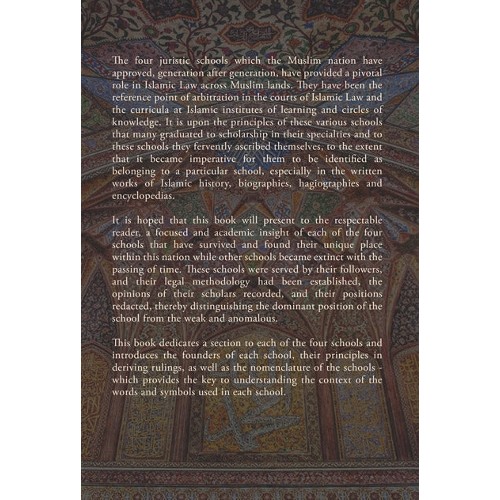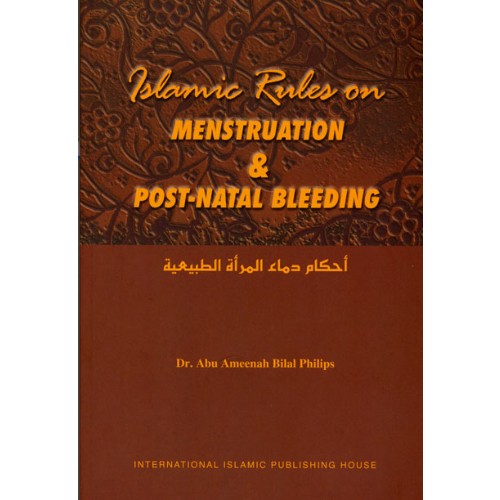Islamic Fatawa Regarding Women (H/B)
Women face a lot of special problems regarding their menses, postpartum bleeding, istihada, hijab, mixing with men, rights & duties with respect to their husband, husband’s household, children, inheritance, marriage, divorce, etc
More than 350 of such problems & issues have been answered in this book by Grand Mufti of Saudi Arabia Sheikh Ibn Baz, and the eminent scholars like Sheikh Ibn Uthaimin, Sheikh Ibn Jibreen and others.
.
Islamic Jurisprudence According to Four Sunni Schools By Jaziri (2 Vols)
Islamic Jurisprudence According to the Four Sunni Schools is a translation of Volume I of Al-Fiqh ‘Ala al-Madhahib al-Arba’ah by the Azhari scholar Sheikh Abd al-Rahman al-Jaziri (1882-1941). Dealing with the forms of worship (Ibadat), this work offers an in-depth discussion of ritual purity (Taharah), ritual prayers (salat), including funeral prayers and the practice of visiting the tomb of the Prophet Muhammad,fasting (siyam), spiritual retreats (i’tikaf), charity (zakat), the pilgrimage to Mecca (both al-hajj and al umrah), and the offering of animal sacrifices
Mukhtasar Minhaj Al Qasidin (Towards the hereafter) – Al Maqdisi
Islamic Jurisprudence According to the Four Sunni Schools is a translation of Volume I of Al-Fiqh ‘Ala al-Madhahib al-Arba’ah by the Azhari scholar Sheikh Abd al-Rahman al-Jaziri (1882-1941). Dealing with the forms of worship (Ibadat), this work offers an in-depth discussion of ritual purity (Taharah), ritual prayers (salat), including funeral prayers and the practice of visiting the tomb of the Prophet Muhammad,fasting (siyam), spiritual retreats (i’tikaf), charity (zakat), the pilgrimage to Mecca (both al-hajj and al umrah), and the offering of animal sacrifices
Islamic Principles for the Muslim’s Attitude during Fitan (trials, tribulations, afflictions, calamities) (P/B)
Trials, tribulations, afflictions, calamities are just few meanings that fall under the word, ‘Fitan’ concerning which Allah says,
“Fear the Fitna, which affects not only those of you who do wrong (but it may afflict everybody). ” Surah al-Anfal 8:25
- and in such testing situations, if a Muslim was to let loose his thoughts without any principles and rules to base his opinions upon- his mind will wander into different directions effecting his behaviour towards his own-self, his family and society.
But observing rules and principles;
- Restrains a Muslim’s opinion to the values and ethics of the Sharee’ah, and
- Protects his thoughts from being effected by those ideas and views which the Sharee’ah does not approve of, thus encouraging appropriate attitude towards his self, his family and society.
In this book, Shaikh Saleh aal-Shaikh explains:
- how a Muslim should THINK and BEHAVE,
- how he should WEIGH and JUDGE people/situations in difficult and challenging times and situations – KEY RULES, which You can use in Your Daily Life too..
Islamic Rules of Order (P/B)
Organizations must have rules of order to facilitate their debate and to fill in the procedures not detailed by their constitutional documents. While most American organizations are content to operate by Robert’s Rules of Order, Muslim organizations have often wrestled with questions over whether the rules of order systemized by a Western military figure are in accord with the Qur’an and the Sunnah.
This book tackles the matter directly and takes into account the Qur’an, the sunnah, Islamic manners and the history of Islamic consultation and leadership to provide a simple, practical guide to organizational procedure that can be incorporated into the governance of Muslim organizations. The book includes advice on writing bylaws and on complying with the best practices of the U.S. Dept. of Justice in a way that is Islamically authentic, transparent, and accountable. It provides a basic starting point for any Muslim organization while allowing for flexibility so that organizations may make any variations they require within their own bylaws and constitution, so that it can accommodate differing schools of thought on Islamic law. In its discursive approach it is an essential primer for understanding the value of rules of order and the Islamic context for their application. The Islamic Rules of Order has been adopted as the rules of order of the Association of Muslims Social Scientists.
Islamic Rules On Menstruation and Post-Natal Bleeding : Revised 2nd Edition (Dr. Abu Ameenah Bilal Philips) IIPH
Menstruation and other forms of vaginal bleeding comprise one of the most difficult chapters of fiqh. This books seeks to make it easy, starting with the authentic evidence, along with a condensed translation of some fatwaas of leading scholars, rearranged to provide a logical flow of ideas.
Islamic Rulings on Menstruation and Postpartum Condition
The birth of human being is a most amazing phenomenon. The physical cycles that the body of woman must endure in order to maintain this act of creation should be respected to the highest degree. Allah mentions that our mothers have born us with difficulty and struggle and because of this are due the highest respect. one among many of the difficulties that women must brave, are the doubts that these conditions present to the correct obervance of her religion. How is her fassting affected, how are her prayers affected, how is her ability to pursue her studies, and how are her conjugal relations affected by her ever changing physical condition in relation to her as the sole vessel of the birth of man. A really valuable publication by Darussalam for all Muslim woman to study
Istihsan (P/B)
This work constitutes a critical analysis of classical and modern aspects of the concept of istihsan (juristic preference), an important principle in Islamic legal legislation throughout history. Although there has been many research works on the subject, it still requires further investigation on the role and nature of istihsan with regard to a combination of classical and modern approaches. Consisting of four chapters, the author begins by introducing some general principles of Islamic law, before discussing the history of istihsan during the time of the Prophet and his Companions. He also analyses the validity of istihsan as a source of law and discusses the differences among scholars on its method of implementation.
Man-made Laws vs Shari`ah
This book appears at a time when many other books





















